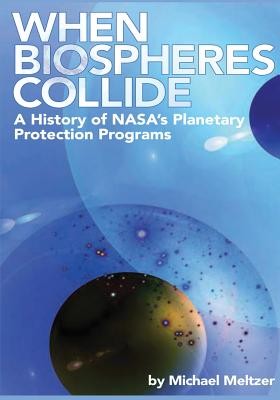
- We will send in 10–14 business days.
- Author: Michael Meltzer
- Publisher: CreateSpace Independent Publishing Platform
- Year: 2013
- Pages: 546
- ISBN-10: 1493586378
- ISBN-13: 9781493586370
- Format: 17.8 x 25.4 x 2.8 cm, softcover
- Language: English
- SAVE -10% with code: EXTRA
Reviews
Description
Each time a space vehicle visits another world it runs the risk of forever changing that extraterrestrial environment. We are surrounded on Earth by a mélange of different microorganisms, and if some of these hitchhike onboard a space mission, they could contaminate and start colonies on a different planet. Such an occurrence would irrevocably alter the nature of that world, compromise all future scientific exploration of the body, and possibly damage any extant life on it. And by inadvertently carrying exotic organisms back to Earth on our spacecraft, we risk the release of biohazardous materials into our own ecosystem. Such concerns were recognized by scientists even before the 1957 launch of Sputnik. This book presents the history of planetary protection by tracing the responses to the above concerns on NASA's missions to the Moon, Mars, Venus, Jupiter, Saturn, and many smaller bodies of our solar system. The book relates the extensive efforts put forth by NASA to plan operations and prepare space vehicles that return exemplary science without contaminating the biospheres of other worlds or our own. As Cassie Conley, NASA's Planetary Protection Officer, has said, "The public can be proud of the way that NASA has responded to planetary protection concerns, with its efforts to act responsibly, communicate openly, and address effectively the potential for contamination." Humans have a powerful urge to explore the unknown, but to protect irreplaceable environments, NASA has committed to conducting space exploration in a manner that is protective of the bodies visited, as well as of our own planet.
EXTRA 10 % discount with code: EXTRA
The promotion ends in 19d.22:55:40
The discount code is valid when purchasing from 10 €. Discounts do not stack.
- Author: Michael Meltzer
- Publisher: CreateSpace Independent Publishing Platform
- Year: 2013
- Pages: 546
- ISBN-10: 1493586378
- ISBN-13: 9781493586370
- Format: 17.8 x 25.4 x 2.8 cm, softcover
- Language: English English
Each time a space vehicle visits another world it runs the risk of forever changing that extraterrestrial environment. We are surrounded on Earth by a mélange of different microorganisms, and if some of these hitchhike onboard a space mission, they could contaminate and start colonies on a different planet. Such an occurrence would irrevocably alter the nature of that world, compromise all future scientific exploration of the body, and possibly damage any extant life on it. And by inadvertently carrying exotic organisms back to Earth on our spacecraft, we risk the release of biohazardous materials into our own ecosystem. Such concerns were recognized by scientists even before the 1957 launch of Sputnik. This book presents the history of planetary protection by tracing the responses to the above concerns on NASA's missions to the Moon, Mars, Venus, Jupiter, Saturn, and many smaller bodies of our solar system. The book relates the extensive efforts put forth by NASA to plan operations and prepare space vehicles that return exemplary science without contaminating the biospheres of other worlds or our own. As Cassie Conley, NASA's Planetary Protection Officer, has said, "The public can be proud of the way that NASA has responded to planetary protection concerns, with its efforts to act responsibly, communicate openly, and address effectively the potential for contamination." Humans have a powerful urge to explore the unknown, but to protect irreplaceable environments, NASA has committed to conducting space exploration in a manner that is protective of the bodies visited, as well as of our own planet.


Reviews